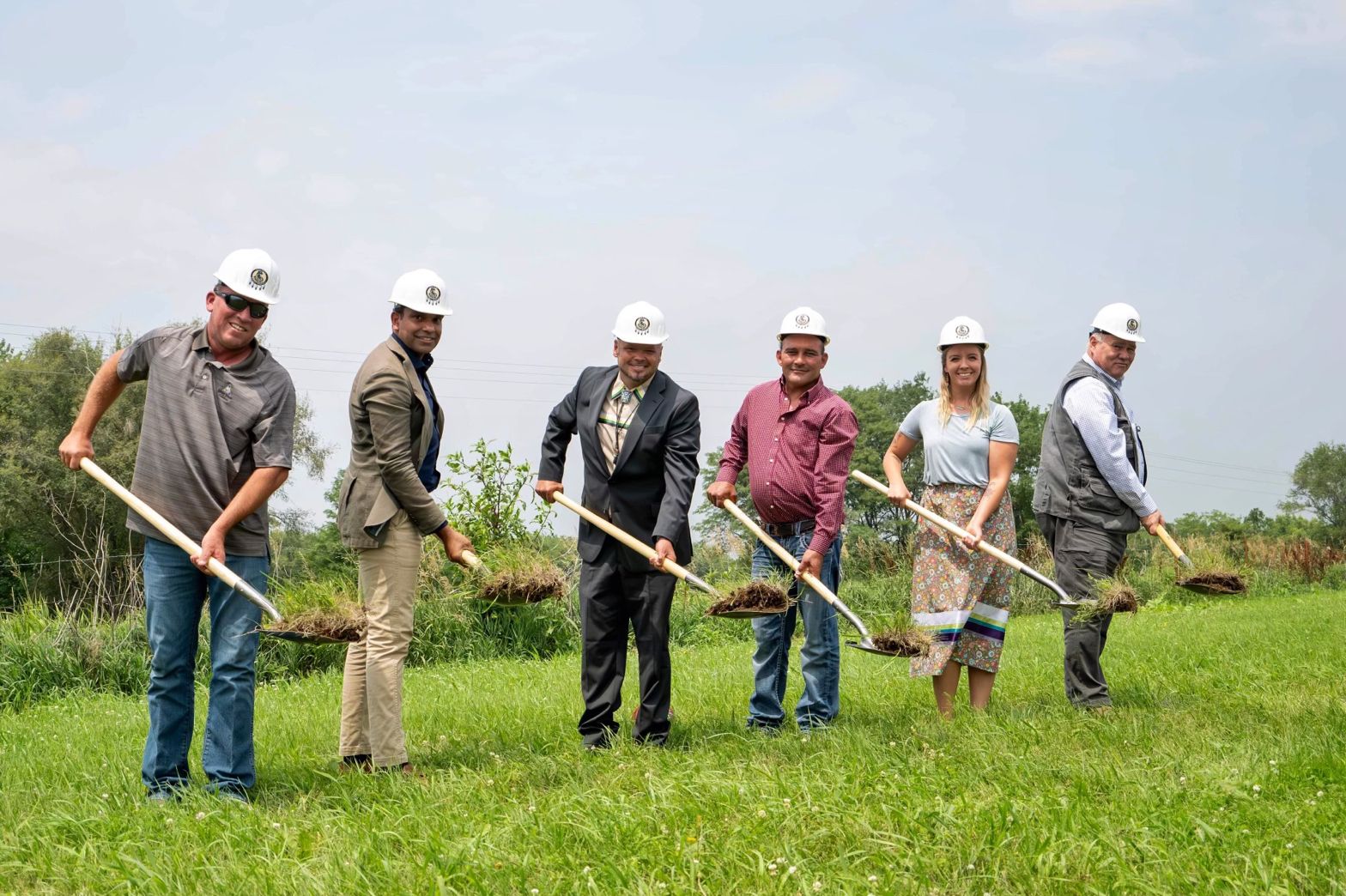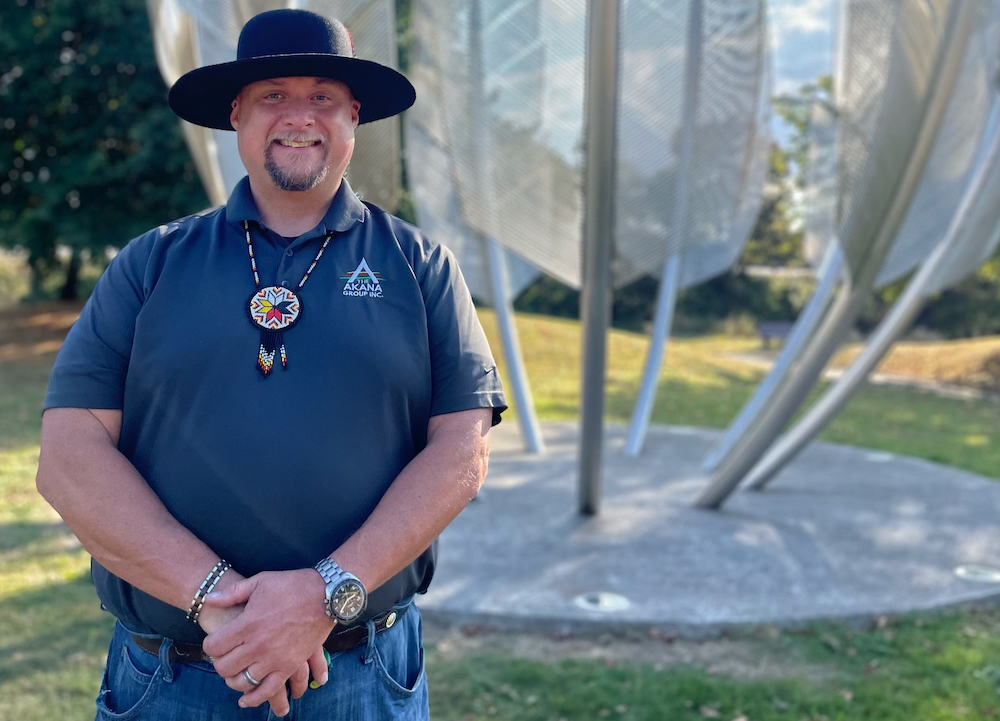
- Details
- By Chez Oxendine
- Food | Agriculture
Two hundred years ago, the Iowa Tribe was forced from its ancestral lands along the Missouri River, uprooted by settlers eager to seize control of vital trade routes. This act of displacement changed their way of life.
Earlier this month, the Iowa Tribe of Kansas and Nebraska (ITKN) took a step towards economic resurgence with the activation of a Foreign Trade Zone (FTZ) in Forest City, Mo. The move holds symbolic weight, as the FTZ sits on the tribe's ancestral lands on the eastern banks of the Missouri River. With the new venture, the ITKN leverages its location, agricultural expertise, and partnerships to position the FTZ as a potential hub for regional trade.
That’s feasible due to the way an FTZ cuts administration costs and typically allows for storage and light manufacturing capabilities on-site. These sites allow for special customs procedures and exports. Using an FTZ can help lower taxes and other administrative burdens.
For the Iowa Tribe and their partners, the FTZ provides a major value add, according to Britni Beck, executive director for the tribe’s Center for Excellence in Regenerative Native Agriculture (CERNA). The site assists with bringing in both domestic and foreign goods, then quickly getting them to their destination.
“We aggregate these services right in the center of the country — we’re in the heartland, where so much of our agriculture takes place,” Beck said. “We can add value not only on imported goods by utilizing the zone to reduce duties and taxes, but by getting those goods into the marketplace.”
The site was recently “activated,” or authorized by U.S. Customs and Border Protection, under the operation of the tribe’s partner in the free trade enterprise: Kansas City, Mo.-based Ayittatoba LLC, a Native-owned trade and logistics company with aspirations for similar partnerships across the country.
Ayittatoba is the operating partner for the site, meaning they oversee trade and logistics operations. The managing partner is Grey Snow Management Solutions LLC, which is the Iowa Tribe’s economic development arm.
Ayittatoba’s chief tool in maintaining the FTZ is RE7, a warehouse and logistics hub in the FTZ. RE7 is a “multimodal” logistics facility, utilizing the FTZ’s proximity to a river, airport and major highways to quickly access most of the United States. Right now, RE7 can provide 2-day shipping to 80% of the country.
That makes the facility the ideal staging ground for quickly bringing product in and getting it out, Ayittatoba President and CEO Chad Johnson said. Trucks from the facility can get to Kansas City in an hour, or as far away as Vancouver, Canada, in 28 hours.
The facility has an automated warehouse, barge services, and cold storage. By 2025, RE7 should be able to handle transfer, distribution, and fulfillment services. Along the way, the facility will provide workforce development opportunities, as well.
Speaking in 2022 to Tribal Business News, tribal chairman Timothy Rhodd said he expected the FTZ to contribute “tremendously” to tribal revenue.
Building a trade hub for other tribal producers would help the Iowa Tribe “capture more of the food dollar,” Rhodd said. Starting the FTZ was designed to improve market access for local producers while providing a hub for national, and international, producers.
“We’re developing national supply chains here,” Rhodd said. “We’ve set this up to develop this zone and figure out what we can do for other tribes, and other countries.
The facility positions the Iowa Tribe to act as a trading partner for Indigenous producers across the country, Beck said. She pointed to a concrete example: having a logistics hub puts some weight behind CERNA’s work. The Center works with groups like the Intertribal Agriculture Council to provide marketing opportunities for Indigenous-made climate-smart commodities.
CERNA certifies those commodities as being made by Indigenous producers on tribal lands, then provides access to networking opportunities with its partners, Beck said. A logistics hub means the Iowa Tribe can provide logistics and trade services for the producers and partners involved.
As an example, cold storage and quick shipping can help producers who struggle to ship food long distances reach a wider audience, Ayittatoba’s Johnson said.
“We can create market access opportunities for that network of ag producers with these tools such as the FTZ,” Beck said. “We can open things up for them.”
 The word Ayittatoba is Choctaw for “a place to trade,” the company's CEO Chad Johnson said. He called the company a way of “picking up the torch” on intertribal trade. (Photo: Facebook)
The word Ayittatoba is Choctaw for “a place to trade,” the company's CEO Chad Johnson said. He called the company a way of “picking up the torch” on intertribal trade. (Photo: Facebook)
‘A place to trade’
Ayittatoba is a wholly owned subsidiary of The Akana Group Inc., a Native-owned small business that specializes in supply-chain management, logistics, and international trade.
The word Ayittatoba is Choctaw for “a place to trade,” Johnson said. He called the company a way of “picking up the torch” on otherwise inert intertribal trade.
Johnson has a big vision for international tribal trade. Ayittatoba’s ultimate goal, he says, is to recreate the RE7 arrangement — a logistics facility in a free trade zone — in partnership with other tribes across the United States. According to Johnson, more RE7-style facilities will create a network that can quickly distribute Indigenous products anywhere in the country.
“We’re trying to create the Indigenous U.S. Foods, the Indigenous Cisco,” Johnson said. “Food is medicine, and this is our way to get that out across these trade routes that were built hundreds of years ago. We’re just following in those footsteps.”
Beyond intra-country distribution, RE7 hubs and their associated Free Trade Zones can help tribes launch international trade, Johnson said.
“This facility can be a foundation for access to a lot of things,” Johnson said. “It definitely needs to be elsewhere. We need more of them around the country.”
By partnering up around RE7 hubs, Johnson said Ayittatoba can help tribes build “economies of scale” around intertribal trade and market access. Producers can reach more markets and tribes can reach greater varieties of products, improving access for everyone.
“There’s always questions of logistics — how we move material, how do we trade, how do we pick up that torch?” Johnson said. “We’re reconnecting this network of nation to nation trades. This isn’t new. This is foundational.”
